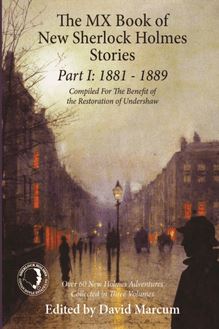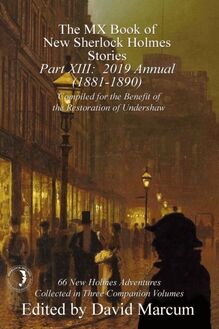-
 Univers
Univers
-
 Ebooks
Ebooks
-
 Livres audio
Livres audio
-
 Presse
Presse
-
 Podcasts
Podcasts
-
 BD
BD
-
 Documents
Documents
-
- Cours
- Révisions
- Ressources pédagogiques
- Sciences de l’éducation
- Manuels scolaires
- Langues
- Travaux de classe
- Annales de BEP
- Etudes supérieures
- Maternelle et primaire
- Fiches de lecture
- Orientation scolaire
- Méthodologie
- Corrigés de devoir
- Annales d’examens et concours
- Annales du bac
- Annales du brevet
- Rapports de stage
La lecture à portée de main
Vous pourrez modifier la taille du texte de cet ouvrage
Découvre YouScribe en t'inscrivant gratuitement
Je m'inscrisDécouvre YouScribe en t'inscrivant gratuitement
Je m'inscrisEn savoir plus
Vous pourrez modifier la taille du texte de cet ouvrage
En savoir plus

Description
Informations
| Publié par | Andrews UK |
| Date de parution | 09 juillet 2020 |
| Nombre de lectures | 0 |
| EAN13 | 9781787055711 |
| Langue | English |
| Poids de l'ouvrage | 1 Mo |
Informations légales : prix de location à la page 0,0674€. Cette information est donnée uniquement à titre indicatif conformément à la législation en vigueur.
Extrait
First edition published in 2020
Copyright © 2020 David Marcum
The right of the individuals listed in the Copyright information section to be identified as the authors of this work has been asserted by them in accordance with the Copyright, Designs, and Patents Act 1988.
All rights reserved. No reproduction, copy, or transmission of this publication may be made without express prior written permission. No paragraph of this publication may be reproduced, copied, or transmitted except with express prior written permission or in accordance with the provisions of the Copyright Act 1956 (as amended). Any person who commits any unauthorised act in relation to this publication may be liable to criminal prosecution and civil claims for damage.
All characters appearing in this work are fictitious or used fictitiously. Except for certain historical personages, any resemblance to real persons, living or dead, is purely coincidental. Any opinions expressed herein are those of the authors and do not necessarily represent those of any other party.
MX Publishing
335 Princess Park Manor, Royal Drive, London, N11 3GX
www.mxpublishing.com
2020 digital version converted and distributed by
Andrews UK Limited
www.andrewsuk.com
David Marcum can be reached at:
thepapersofsherlockholmes@gmail.com
Cover design by Brian Belanger
www.belangerbooks.com and www.redbubble.com/people/zhahadun
Copyright information
“The Adventure of the Chocolate Pot” ©2019 Hugh Ashton and j-views Publishing. Hugh Ashton appears kind permission of j-views Publishing.
“The Adventure of the Wells Beach Ruffians” ©2019 Derrick Belanger.
“A Word From Stepping Stones” ©2020 Lizzy Butler.
“The Case of the Rewrapped Presents” ©2000, 2019 Bob Byrne. This story originally appeared on-line in a slightly different form.
“The League of Unhappy Orphans” ©1944, 2019 Leslie Charteris and Denis Green. Originally broadcast on radio on October 23, 1944 as part of The New Adventures of Sherlock Holmes radio show, starring Basil Rathbone and Nigel Bruce. Introduction ©2019 Ian Dickerson. First text publication of this revised version, original to this collection. Printed permission of the Leslie Charteris Estate.
“Introduction—The League of Unhappy Orphans” ©2019 Ian Dickerson.
“Strength to Strength” ©2020 Steve Emecz.
“The Secret Admirer” ©2020 Jayantika Ganguly.
“The Cobbler’s Treasure” ©2019 Dick Gillman.
“The Adventure of the Grand Vizier” and “The Adventure of the Incessant Workers” ©2019 Arthur Hall.
“The Bleeding Heart” ©2019 Paula Hammond.
“What Could Be Better For the Purpose?” ©2020 Roger Johnson.
“The Case of the Purloined Talisman” ©2019 John Lawrence.
“Foreword” ©2019 John Lescroart.
“The Fractured Freemason of Fitzrovia” ©2019 David L. Leal.
“The Adventure of the Doctor’s Hand” ©2019 Michael Mallory.
“Editor’s Foreword: Not Just ‘Always 1895’—A Hero for Now” and “The Cat’s Meat Lady of Cavendish Square” ©2019, 2020 David Marcum.
“When Best Served Cold” ©2019 Steven Mason.
“The Unveiled Lodger” ©2019 Mark Mower.
“The Problem of the St. Francis Parish Robbery” ©2020 R.K. Radek.
“The Adventure of the Three Fables” ©2019 Jane Rubino.
“The Invisible Assassin” ©2020 Geri Schear.
“The Case of the Missing Rhyme ( A Poem )” ©2019 Joseph W. Svec III.
“The Mummy’s Curse” ©2019 D.J. Tyrer.
“The Deceased Priest” ©2019 Peter Coe Verbica.
Editor’s Foreword: Not Just “Always 1895”—A Hero for Now
by David Marcum
In late 1887, Dr. John H. Watson finally accomplished what he’d been promising to do for years—to publish an account of the first case that he’d shared with Mr. Sherlock Holmes.
It had occurred back in early March 1881, when Watson had known Holmes for about nine weeks. They had first met a couple of months before that, in the laboratory of Barts Hospital on New Year’s Day, a Saturday, after being introduced by a mutual acquaintance—simply because both had mentioned in this friend’s hearing that they were in need of someone to split the cost of affordable lodgings.
The following day they examined the rooms at 221 Baker Street and, finding them acceptable, Watson moved his own possessions around that very night, with Holmes doing the same the next morning.
Watson’s physical assets were limited. He’d only recently returned from Afghanistan, where he’d received a grievous and nearly fatal wound while serving at the Battle of Maiwand, only to further face the trials of enteric fever during his subsequent recovery. He states that after he and Holmes agreed to share the lodgings at 221b Baker Street, he was able to move his possessions from his hotel in a single night. Holmes’s were a bit more extensive, consisting of several boxes and portmanteaus. No doubt these included materials for his scientific research, records of past cases, and his extensive commonplace books.
From early January to early March 1881, the two settled into a tolerable existence, mostly as adjacent strangers. Holmes turned twenty-seven a few days after they moved to Baker Street, and Watson was then around six months past his twenty-eighth birthday. However, in spite of this similarity in ages, they were vastly different individuals. Holmes, always brilliant, had been earning his bread and cheese as a consulting detective for a number of years, living in Montague Street by the British Museum while pursuing various studies to broaden and deepen his professional experience. Watson had trained as a doctor, and after receiving his degree in 1878, had eventually ended up in military service in India and Afghanistan, leading to his injuries and severance from the British Army.
In Baker Street, they each carried out their separate lives while trying not to bother the other. Watson was simply concerned with recovery, having neither the energy nor the inclination to do much more than stay around their rooms and wonder what his new flatmate was up to.
For Mr. Sherlock Holmes was something of a mystery to him. Watson, with nothing better to do, nowhere to go, and no other friends, began to try and learn more about this mysterious person. He wasn’t very successful. In those early days, Holmes kept regular habits—early to bed, and gone before Watson rose in the morning. Holmes’s trips away from Baker Street involved long walks through London, or to Barts. Some days he was energetic, and others found him lethargic, barely moving or speaking—just as he’d warned would happen when he and Watson first met and described themselves to one another.
Watson once made a list of Holmes’s skills and limits, but after realizing that it wasn’t really telling him anything, he threw it in frustration into the fire. He wanted to know more about this unusual person who seemed to be educating himself toward some specific but unknown goal, and who was visited by so many interesting people—for it wasn’t long after they started sharing rooms that a curious collection of individuals began dropping by to consult with Holmes—although about what Watson didn’t have a clue.
There was a young fashionably dressed girl, and an excited and grey-headed seedy visitor. And a slip-shod elderly woman. And an old white-haired gentleman and a railway porter. As Watson recalled, one of the visitors who came three or four times in a single week was a “ little sallow rat-faced, dark-eyed fellow ”, introduced simply as “ Mr. Lestrade ”. And every time that one of these callers arrived, Holmes would politely ask that Watson withdraw to his own bedroom so that he could use the sitting room as his “ place of business ” to see his “ clients ”. And Watson would climb the stairs for a while to his room—which was probably good therapeutic exercise for him—and then return a little while later, never quite willing to simply ask Holmes just what his business actually was.
* * *
This changed on March 4th, 1881, when the two flatmates had a discussion about a magazine article, written by Holmes, regarding observation and deduction. Watson was inclined to dismiss it as “ ineffable twaddle ” . . . although it was true that Holmes had demonstrated his skills at their first meeting when he’d stated that Watson had been in Afghanistan—an action that puzzled the doctor greatly.
That morning, Holmes had revealed to Watson that he was something called a “ consulting detective ”, so now Watson knew what and why Holmes did what he did—but he didn’t really know anything at all. Not yet. Who can say what would have happened if this conversation had simply ended then and the two of them had gone about their normal daily business?
We are told that in a quantum universe, all possibilities exist. Schrödinger’s cat is alive and dead. Every choice isn’t an either/or proposition—rather, both happen . . . somehow. Somewhere there’s a world where Holmes received a message from the police that morning of March 4th, 1881, in the midst of that conversation with Watson, and then he retrieved his hat and coat, departing to examine a murdered body on his own, while the invalid physician remained in the Baker Street sitting room, purposeless as he had been for the previous two months. Life in that universe continued along the same lines, with Holmes going out on his typical errands, and continuing to meet clients who came to obtain his armchair advice, while Watson continued to politely retreat upstairs. In a few months, Watson probably tired of this and sought another residence, while Holmes was likely making enough money from his consulting practice to no longer need anyone else to share expenses. After moving out, Watson might have continued to get better, or he might have slid into a life of profligacy and drunkenness. Holmes would certainly have continued to
-
 Univers
Univers
-
 Ebooks
Ebooks
-
 Livres audio
Livres audio
-
 Presse
Presse
-
 Podcasts
Podcasts
-
 BD
BD
-
 Documents
Documents
-
Jeunesse
-
Littérature
-
Ressources professionnelles
-
Santé et bien-être
-
Savoirs
-
Education
-
Loisirs et hobbies
-
Art, musique et cinéma
-
Actualité et débat de société
-
Jeunesse
-
Littérature
-
Ressources professionnelles
-
Santé et bien-être
-
Savoirs
-
Education
-
Loisirs et hobbies
-
Art, musique et cinéma
-
Actualité et débat de société
-
Actualités
-
Lifestyle
-
Presse jeunesse
-
Presse professionnelle
-
Pratique
-
Presse sportive
-
Presse internationale
-
Culture & Médias
-
Action et Aventures
-
Science-fiction et Fantasy
-
Société
-
Jeunesse
-
Littérature
-
Ressources professionnelles
-
Santé et bien-être
-
Savoirs
-
Education
-
Loisirs et hobbies
-
Art, musique et cinéma
-
Actualité et débat de société
- Cours
- Révisions
- Ressources pédagogiques
- Sciences de l’éducation
- Manuels scolaires
- Langues
- Travaux de classe
- Annales de BEP
- Etudes supérieures
- Maternelle et primaire
- Fiches de lecture
- Orientation scolaire
- Méthodologie
- Corrigés de devoir
- Annales d’examens et concours
- Annales du bac
- Annales du brevet
- Rapports de stage
















